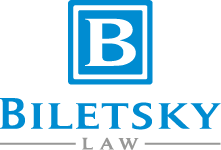What’s In A Copyright?
In modern society, copyrights come up more than you may notice. Basically every book, movie, television show, play, and drawing are subject to copyright laws. Understanding what exactly copyrights are and how copyright laws work will help give you a better understanding of the subject.
So let’s start with what a copyright is. Copyright law has a long history dating back several hundred years, but for now, we’ll focus on modern copyright law in the United States. A copyright is an exclusive right that allows someone to print, publish, perform, film, or record literary, artistic, or musical material. What that means is that the owner of the copyright controls how the copyright is used legally. An owner can license, transfer, or sell their copyright and that’s where most copyright owners are able to make money from their creation.
What does it take to have a copyright?
Owning a copyright is easy if you created an original work. In fact, you do not even need to go through the formal process of registration in order to own a copyright. Copyright is automatically granted once an original work is “fixed in a tangible medium of expression.” So let’s talk about what it takes to have a copyright:
Originality
It should come as no surprise that in order to have the copyright to something that it needs to be original. If this was not the case, everyone would just attempt to gain the copyrights to work that people had already created and the law would essentially be useless. Determining whether something is “original” can be a complex issue and courts around the country have wrestled with this issue time and time again. Whether you are able to use enough creativity to make someone else’s work original is a separate issue in and of itself, but if you are the original creator and have used creativity in the objects’ creation, you have likely met the requirement for originality.
Fixation
Fixation is a concept that may seem more complex to understand, but for most purposes, it is rather straight forward. Keep in mind however that this concept has continued to change along with the evolution of digital media. Putting many of the digital media issues aside, fixation comes from simply putting the work onto something “fixed.” When words are printed on pages, they are fixed. When a song is saved as an .mp3, it is fixed. When the frames of a movie are imprinted onto film, it is fixed. And well…you get the point, almost anything physical (or digital if it can be saved) will fulfill the fixation requirement.
So if you’ve used creativity to create an original piece of work that is fixed onto something tangible, you may have a copyright. Copyrights are automatic in that you do not need to register your work with the Copyright Office in order for you to have a valid copyright. Rather, as soon as it goes down on paper or is saved as a file, you receive copyright protection. The classic myth that you need to mail it to yourself or any of those shortcuts to copyright ownership is unnecessary. However, even if you do have the copyright to the work, you may still consider registering the copyright.
So why should I register?
Although you may automatically have a copyright, registration is still an important part of protecting your work. Here are some of the advantages of registration:
You can sue
In order to sue for copyright infringement you must have registered your copyright. Although you may still be able to bring a lawsuit against the infringing party, to bring a claim for copyright infringement, you need to register. In addition to this benefit, timely registration can provide you with even more benefits. Timely registration allows you the benefit of receiving statutory damages. Statutory damages range between $750 to $30,000 or can go up to $150,000 for willful infringement. Whether registration in timely depends on several other factors such as the date of publication of the work.
It makes things easier
Registering your copyright makes several things easier. First, it makes it easier for you to win a lawsuit. The reason for this is because it makes it harder for someone to argue that the infringement was innocent because registration provides notice to everyone that you are the owner of the work.
Registration also makes it easier to transfer, license, or sell your copyrighted work. In fact, certain agreements are not even possible without your work being registered. For example, agreements that lead to the production of films and television shows usually require purchase agreements for the underlying work. Many of these agreements require the copyright to be licensed or assigned to the other company. Without having your work copyrighted it may be harder to enter into these kinds of agreements.
Now what?
If you had not given serious consideration into registering your work with the U.S. Copyright Office, hopefully you’re thinking about it now. The Copyright Office has made it easy to register your copyright and the fee for doing so online is only $35 (as opposed to mailing in the registration which costs $65). Depending on the work, registration can be easily be done yourself or if there are complicating circumstances, a legal professional will be able to perform the necessary registration procedures.


